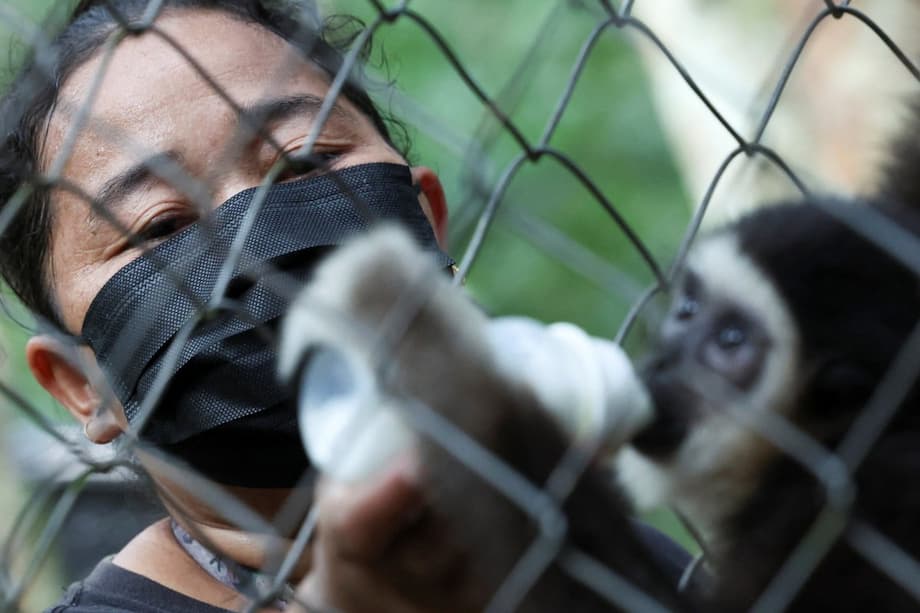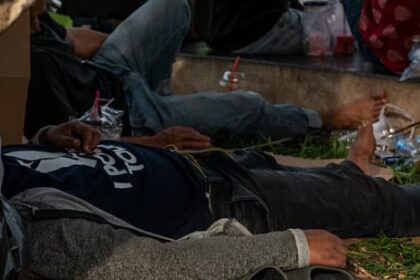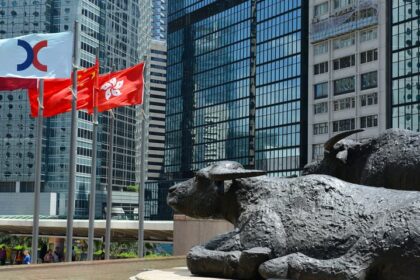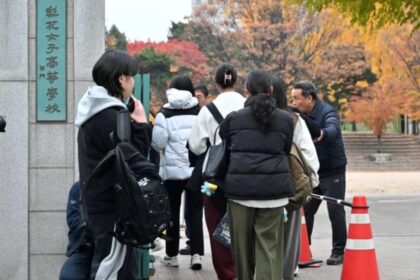Malaysia’s First All-Female Indigenous Ranger Unit: Guardians of the Gibbons
In the heart of Malaysia’s lush rainforests, a quiet revolution is underway. Seven women from the Semai tribe, one of the country’s most marginalized indigenous groups, have stepped beyond traditional roles to become the nation’s first all-female, all-indigenous wildlife ranger unit. Their mission: to protect Malaysia’s endangered gibbons from extinction and, in doing so, redefine what it means to be a woman and an indigenous leader in conservation.
Sunnyda Yok Nun, known as Cidot, is a 38-year-old Semai woman whose journey epitomizes this transformation. She recalls her first encounter with gibbons during ranger training, captivated by their haunting, melodic calls that echoed above the river’s roar. “Their voices are so powerful, as they overpowered the sound of the river,” she said, describing a moment that would shape her life’s work.
Why Are Gibbons Endangered in Malaysia?
Malaysia is home to five species of gibbons, all classified as endangered by the International Union for Conservation of Nature (IUCN). These small apes, known for their agility and distinctive songs, face a trifecta of threats:
- Habitat Loss: Deforestation for agriculture, logging, and development has decimated the forests gibbons call home.
- Hunting: Gibbons are hunted for bushmeat and traditional medicine.
- Illegal Pet Trade: Baby gibbons are often captured and sold as exotic pets, a practice that usually involves killing the mother.
The consequences are dire. Gibbons are not just charismatic creatures; they are vital seed dispersers, helping regenerate Malaysia’s forests. Their decline signals broader ecosystem distress.
Defying Tradition: The Rise of the Semai Women Rangers
The Semai people, indigenous to Pahang state, have long faced poverty, limited access to education and healthcare, and social marginalization. For Semai women, these challenges are compounded by cultural norms that confine them to domestic roles. The creation of the all-female ranger unit, led by the Gibbon Conservation Society (GCS), marks a radical departure from these traditions.
Many of the women never imagined themselves as conservationists. Yet, driven by a deep connection to their land and its wildlife, they have embraced the challenge. Their work includes:
- Feeding and rehabilitating rescued gibbons
- Monitoring gibbon health and behavior
- Documenting wildlife data using citizen science methods
- Educating their communities about conservation
“People have mocked us. My own family said hurtful things, but I chose to ignore them,” Cidot shared, reflecting on the resistance she faced. But the women’s perseverance is changing minds, both within their communities and beyond.
The Gibbon Conservation Society: A Catalyst for Change
The Gibbon Conservation Society, founded by primatologist Mariani “Bam” Ramli, is the driving force behind this initiative. Ramli’s own journey began in 2013 when she cared for a confiscated infant gibbon, sparking a passion that led her to establish GCS. Over the past decade, she has built a robust organization that now operates two rehabilitation centers—one in Raub, Pahang, and another in Kota Belud, Sabah.
GCS currently cares for 29 gibbons: 18 at its Pahang center and 11 in Sabah. The organization follows rigorous international guidelines for rehabilitation and eventual release, ensuring each gibbon is physically, emotionally, and socially ready for the wild. Annual health checks and individualized care plans are cornerstones of their approach.
Ramli’s leadership has been internationally recognized. She is the only Malaysian woman to be named a World Female Ranger Week Ambassador and recently received the World Female Ranger ‘Resilience’ Award. Her vision is clear: “One day, I hope this entire project can be handed over to them. It’s just a matter of giving them encouragement and also opportunity for the ladies to show their strength.”
Inside the Ranger’s Daily Life: From Rescue to Rehabilitation
The work of a gibbon ranger is demanding and deeply personal. At the Gibbon Rehabilitation Centre in Raub, the women care for rescued gibbons like Enku, a two-year-old surrendered pet. Feeding, cleaning, and providing enrichment are daily tasks, but the rangers also monitor each animal’s progress toward rewilding.
Rehabilitation is a slow, careful process. Many rescued gibbons arrive traumatized, malnourished, or carrying hidden infections from prolonged human contact. Structured health checks and behavioral assessments guide their recovery. The ultimate goal is to prepare them for release, where they can form stable family groups, forage, communicate, and defend territory—skills essential for survival in the wild.
Recent breakthroughs highlight the program’s success. At the Malaya Gibbon Rehabilitation Project in Raub, two gibbon families have produced offspring in captivity, a testament to the effectiveness of the rehabilitation protocols. The families are being closely monitored for readiness to return to the wild, with the all-female Semai ranger unit playing a pivotal role in their care and eventual release.
Empowering Women, Transforming Communities
For the Semai women, becoming a ranger is more than a job—it is an act of reclaiming agency and challenging gender-based violence and discrimination. Many of the rangers are single mothers who previously performed traditional Sewang dances to welcome visitors. Now, they are scientists, educators, and protectors of their ancestral forests.
Their work is also creating new livelihood opportunities. Through the Adopt A Gibbon program, supporters can sponsor the care of individual gibbons, providing funds for food, medicine, and enrichment. Corporate partners are increasingly interested in supporting the release of rehabilitated families, with opportunities to name newborns and monitor their progress via live video feeds.
Challenges and the Road Ahead
Despite these achievements, the fight to save Malaysia’s gibbons is far from over. The illegal wildlife trade remains a persistent threat. In a recent incident, authorities intercepted a smuggling attempt of four live gibbons at Kuala Lumpur International Airport, underscoring the need for expanded rescue and rehabilitation capacity.
Funding is another major hurdle. The release of rehabilitated gibbon families is contingent on securing sufficient resources for monitoring and support. GCS is actively seeking partnerships with researchers, universities, and volunteers to build capacity and ensure long-term success.
Education and advocacy are equally important. The Semai rangers serve as role models, demonstrating that indigenous women can be leaders in science and conservation. Their stories are celebrated during World Female Ranger Week, a global campaign that amplifies the voices of women on the frontlines of wildlife protection.
Broader Implications: Conservation, Gender Equality, and Indigenous Rights
The impact of Malaysia’s all-female indigenous ranger unit extends far beyond the forests of Pahang. Their work embodies the intersection of conservation, gender equality, and indigenous rights. By protecting gibbons, they are also safeguarding their own cultural heritage and the health of Malaysia’s ecosystems.
Experts note that involving indigenous communities in conservation is not just ethical—it is effective. Indigenous peoples often possess deep ecological knowledge and a vested interest in preserving their lands. When women are empowered to lead, the benefits multiply, fostering resilience and innovation in the face of environmental and social challenges.
In Summary
- Malaysia’s first all-female, all-indigenous ranger unit is breaking barriers in wildlife conservation, led by women from the Semai tribe.
- The rangers protect endangered gibbons, which face threats from habitat loss, hunting, and the illegal pet trade.
- The Gibbon Conservation Society, founded by Mariani Ramli, provides training, support, and international recognition for these women.
- Rangers care for rescued gibbons, monitor their health, and prepare them for release back into the wild, contributing to forest regeneration.
- The initiative empowers women, challenges traditional gender roles, and creates new economic opportunities for indigenous communities.
- Ongoing challenges include combating wildlife trafficking and securing sustainable funding for conservation efforts.
- The success of the Semai women rangers highlights the importance of indigenous leadership and gender equality in global conservation.












